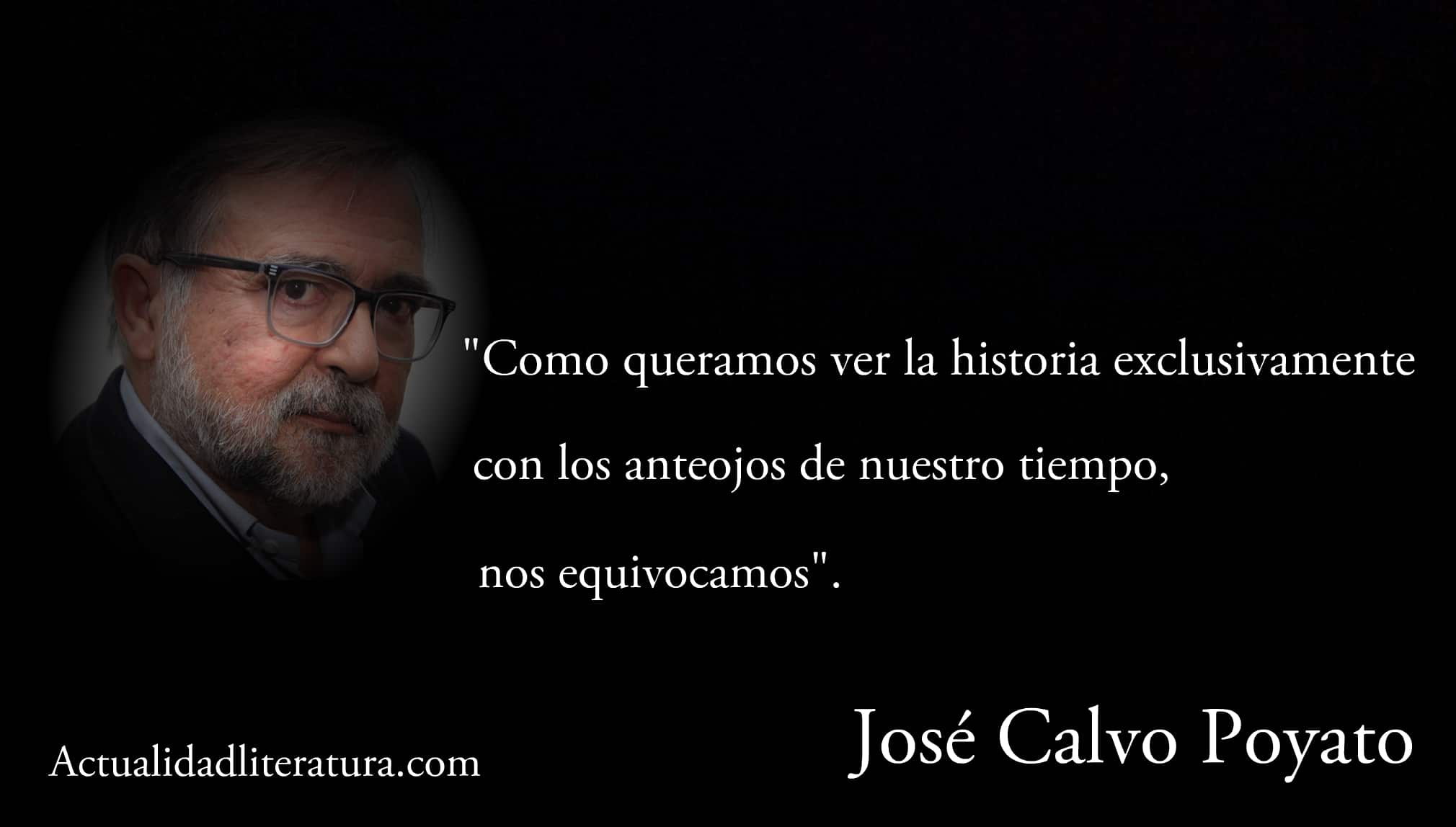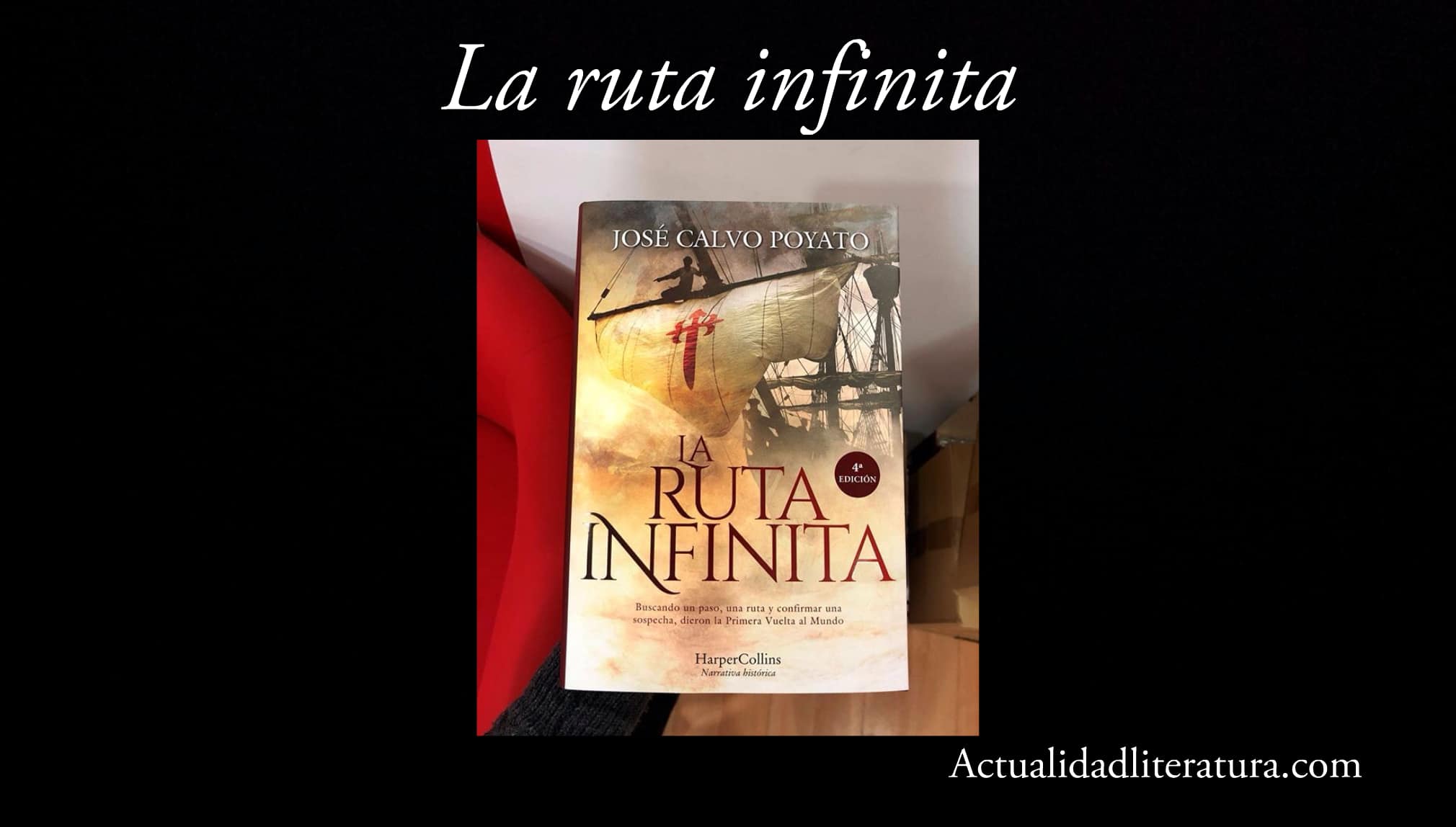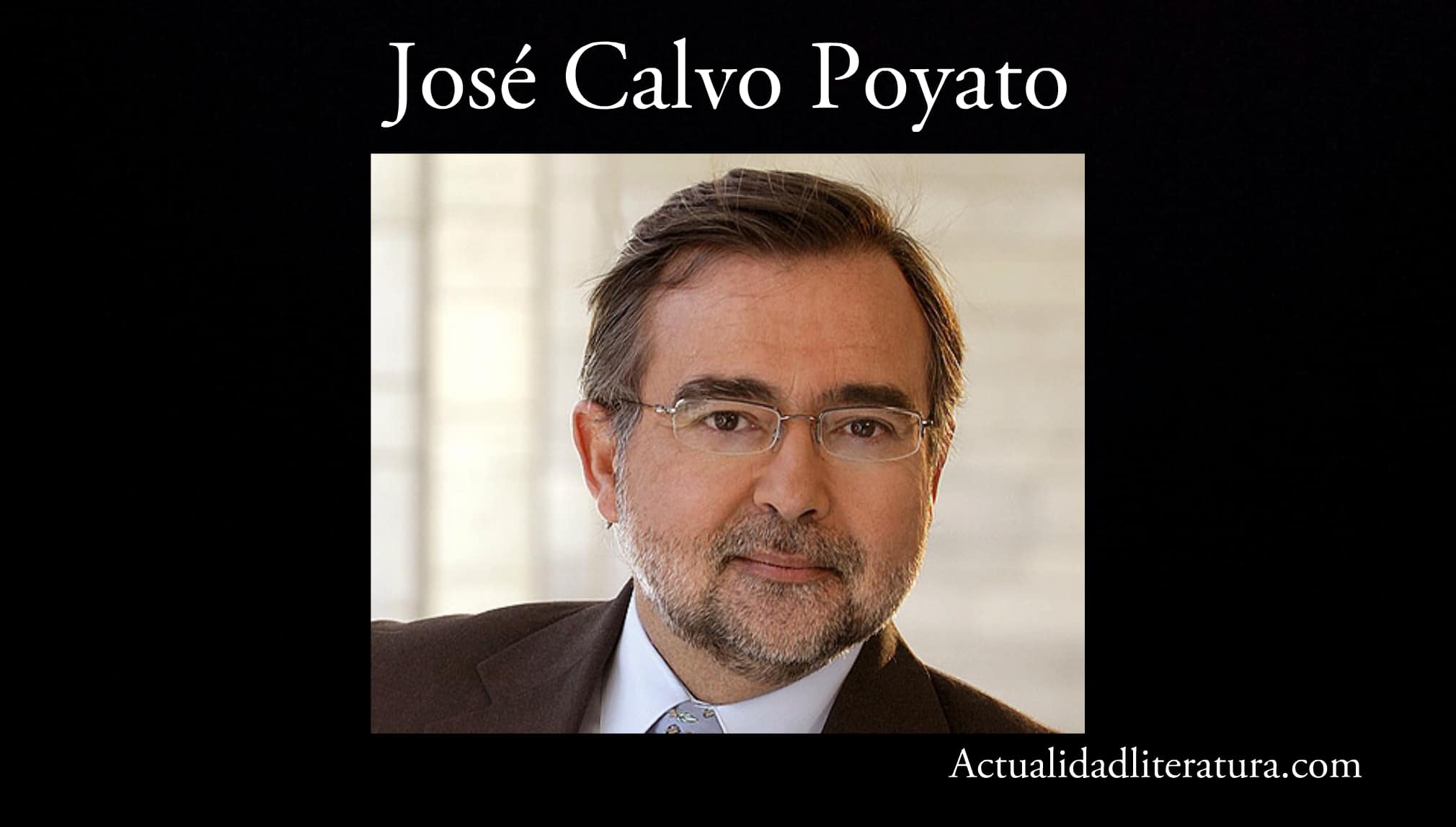
Quote by José Calvo Poyato.
The infinite route is a historical novel written by José Calvo Poyato. This text narrates the events related to the first round the world tour with exceptional rigor and carefully respecting the documented incidents. Because it was an accidental and bumpy journey, started by Fernando de Magallanes and completed by Juan Sebastián Elcano.
The story is divided into two parts. In the first, the reader assists with Magellan in all the preparations to carry out the mission. The initial goal was to find an alternate route to the Spice Islands. The second half, focuses on the incidents of the journey started with a crew of 239 men aboard five ships, completed by one ship and 18 survivors.
The author
José Calvo Poyato is one of the most respected Spanish historians today. In his work he insists on vindicating the achievements of those explorers who set sail from the Iberian Peninsula. in search of new territories. These are legendary figures who turned Spain into a machine to conquer unprecedented lands (for European civilization) since the end of the XNUMXth century.
One of his objects of study is precisely Fernando de Magallanes. The Portuguese admiral - feeling belittled by his compatriots - became a Spanish national. This conjuncture allowed him to promote one of the most amazing feats in the history of mankind.
Political career
Calvo was born on July 23, 1951 in Cabra, a municipality of the Province of Córdoba, Andalusia. For a decade he was mayor from this town, as well as a member of the Córdoba Provincial Council and a member of the Andalusian Parliament. Likewise, his sister Carmen Calvo Poyato is the current First Vice President of the Government headed by Pedro Sánchez.
José Calvo Poyato is a doctor in modern history from the University of Granada. Since 2005, he definitively moved away from politics to dedicate himself fully to his work as a writer. He is currently a columnist for the newspaper ABC and a member of the Royal Academy of Sciences, Fine Letters and Noble Arts of Córdoba. It is also part of the Andalusian Academy of History.
Features of your publications
Its catalog of publications is composed mainly by biographies, essays and historiographic reviews of transcendental events and characters of the Iberian Peninsula. In the same way, in his works he shows a special interest in what happened within Andalusia and the towns of Córdoba.
His debut in the genre was The enchanted king (1995), stars King Charles II. Who, in the end, would become part of the official historiography as the last member of the Austrian Dynasty in Spain. Whose death lit the fuse of the War of Succession.
The infinite route

The infinite route.
You can buy the book here: The infinite route
A sailor with wounded pride
In the middle of the 1510s, Fernando de Magallanes felt undervalued by the rulers of his kingdom. Well, he believed he had great merits as a sailor. In addition, the admiral was eager for new adventures and eager to explore the unknown world just "discovered" by Columbus. Then, he turned to the great rivals of his crown: the kingdom of Castile.
At that time, Spain and Portugal had a treaty according to which they shared the world. Specifically, the boundaries between the domains of one and the other were established by the islands of Cape Verde. That is to say, all territory to the west of this archipelago was Spanish territory, while to the east it belonged to Lusitania.
The proposal
The offer of Magellan for Carlos I was to find an alternate route (by the West) from the Iberian Peninsula to the islands of the species. Therefore, the mission would show that this archipelago (of the Moluccas, within present-day Indonesia) was on "the Spanish side of the world."
Navigating between politics
Long before Magellan could set sail, he had to navigate a number of somewhat difficult incidents. Specifically, they were five years of arduous negotiations —some of them truly embarrassing— related by Calvo Poyato carefully in the first part of the book.
The development of this antecedent allows the reader to know the functioning of Spanish society at the beginning of the Renaissance period. Similarly, the author reveals many "secret" facts about Seville. Because, at that time, the Andalusian city became the economic epicenter of the kingdom after the discovery of the West Indies.
To the sea
After arduous political battles, along with internal and external conspiracies, Magallanes managed to set sail from Seville on August 10, 1519. His route: first, to the Atlantic; then, heading to the southern seas (today known as the Pacific Ocean, thanks precisely to this expedition).
The admiral commanded a squad made up of five ships: Trinidad (captained by him), San Antonio, Concepción, Victoria and Santiago. On the other hand, the author's mastery of the story to develop a fluent narrative is very palpable. The writer manages to capture in a formidable way the difficulties faced by the characters and how they become stronger and stronger.
First setbacks
Barely a few months passed through the Atlantic Ocean, when the first internal conflicts and some groups of rebel crew members appeared. In consecuense, Magellan was forced to show his "dark side" to stay in control. Additionally, the harsh southern climate worsened the conditions of the trip.
In the South Seas
Once in the Pacific Ocean, far from finding tranquility, the crew ran out of food and began to starve ... despair was unsustainable. But Magellan finally got the route originally set by Columbus: the archipelago of the Philippines.

Jose Calvo Poyato.
Thus, the admiral showed that the Moluccas were "on the Spanish side." However, Fernando de Magallanes could not "prove" it personally, as he died before arriving at the islands of the species. For this reason, Juan Sebastián Elcano assumed command of the diminished expedition.
True to history
The last part of the story describes the events on board the Victoria, the only half-complete ship that completed the infinite route. In addition to the hunger and boredom after sailing for so long, the crew had to remain vigilant. It was not for less, because the way back passed through African coasts (under the control of the Portuguese).
Meta
On September 6, 1522, Elcano and 17 other men docked in Seville. In the words of José Calvo Poyato, this feat was not given due importance. Furthermore, the Andalusian intellectual points out that, if the expedition had failed, he would be remembered more in Spain. In any case, The infinite route has the merit of rescuing a truly amazing chapter in the history of humanity.
Although the story is interesting from beginning to end, the political fabric of the first part of the book is a bit thick. Therefore, this section of the text (on dry land) slightly wears the readers and the author himself. Finally, when his characters are on the high seas, Calvo Poyato seems in a hurry to complete the journey. Still, it's an excellent read.